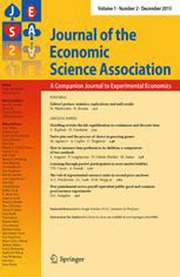No CrossRef data available.
Article contents
Testing effects of loss framing and checklists: evidence from a field experiment on wellness program participation in Philadelphia
Published online by Cambridge University Press: 17 January 2025
Abstract
Loss framing and checklist formatting are two oft-cited tools for encouraging behavior change, but there is little causal evidence on their impact in field settings. We partnered with the City of Philadelphia to test the effectiveness of these tools to increase completion of the City’s wellness program. In our experiment, 5235 City employees and retirees were randomly assigned to receive one of four postcard versions (using a 2 × 2 design), whereby we varied both framing (gain or loss) and how instructions were provided (information only or information in checklist format). Our results suggest that neither loss framing nor the checklist formatting significantly influenced the likelihood that individuals would complete the wellness tasks, or how quickly they completed the tasks. We conclude that this specific form of employee behavior may be difficult to influence through the “passive” behavioral interventions we tested, and suggest that a more “active” approach may be required in such instances.
Keywords
Information
- Type
- Original Paper
- Information
- Copyright
- Copyright © Economic Science Association 2019
Footnotes
Electronic supplementary material The online version of this article (https://doi.org/10.1007/s40881-019-00077-x) contains supplementary material, which is available to authorized users.

